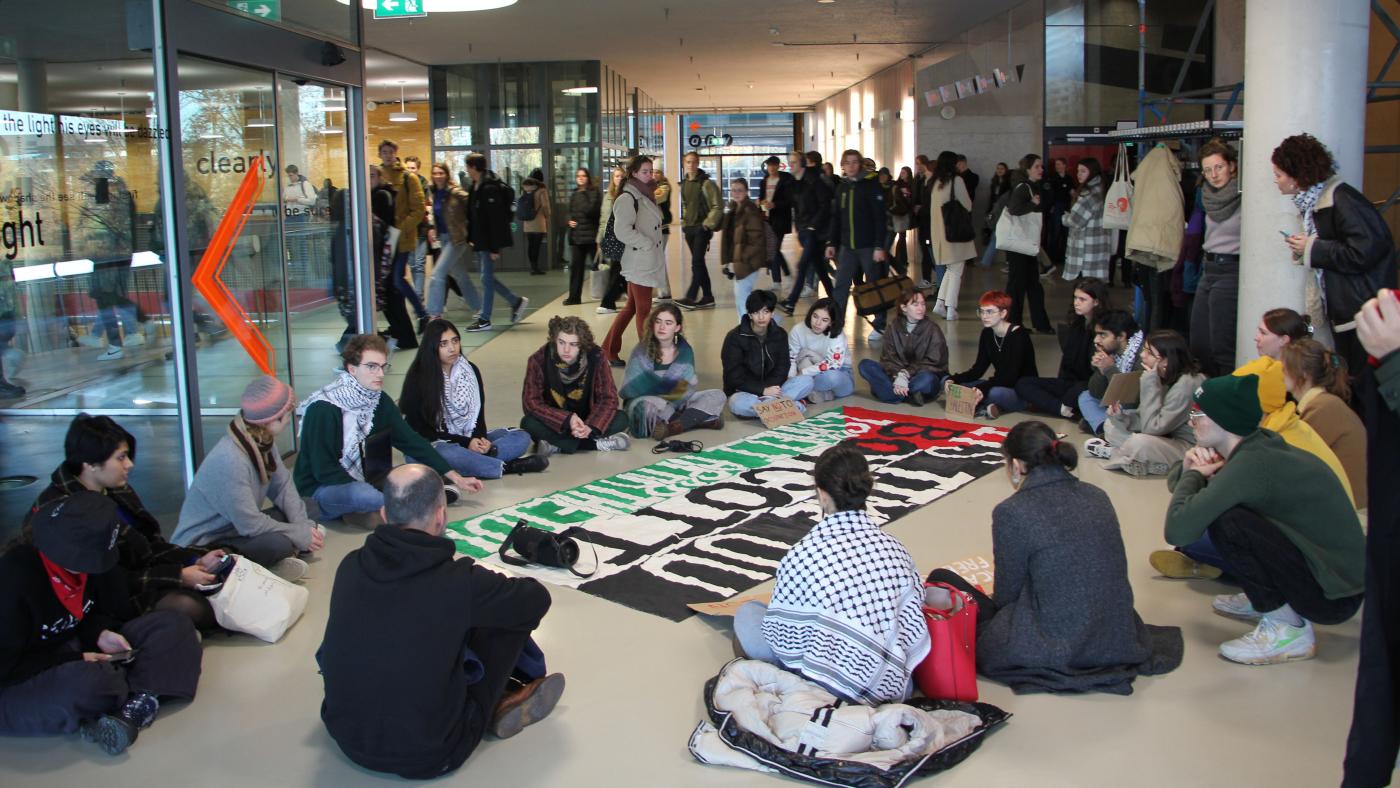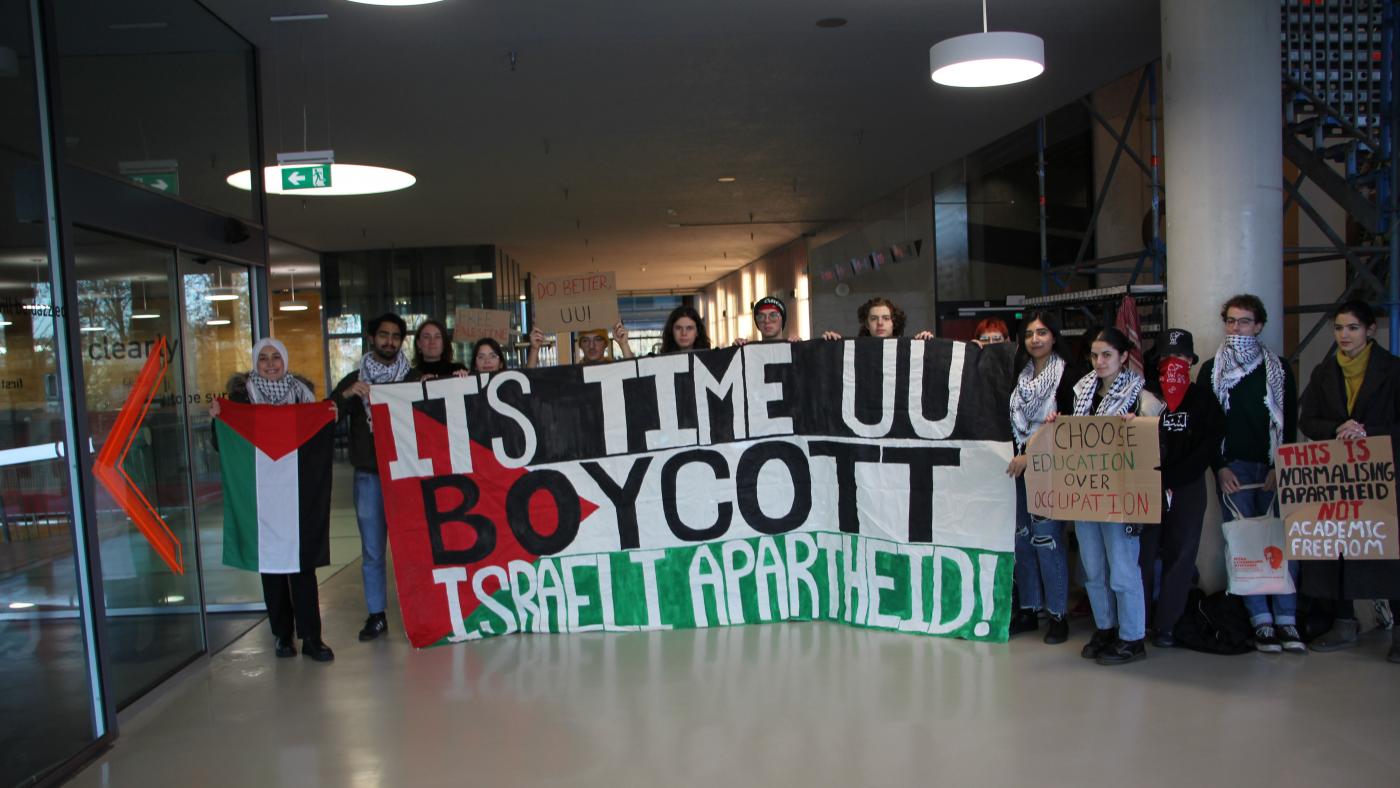Petition collects 500 signatures
Teach-in protests against visit of Israeli delegation to UU teacher-training program

“We're organising a meeting to talk about the injustice that is being wrought on the Palestine people by the Israeli government. We hope that the people attending the meeting will not join the Israeli delegation, sitting here with us instead," says the initiator of the protest, the UU-student Itaï van de Wal.
About twenty people stood on the first floor of the Educatorium building to protest against the visit of an Israeli delegation from the Atudot Le’Israël Programme for Education. According to the petition, which called for the cancellation of the meeting, the institute is directly financed by the Israeli government. UU staff members were asked to boycott the meeting as the protest initiators find that, by holding such an event, UU is contributing to the normalisation of the segregation of the Palestinian people and implicitly rejecting Palestinians' right to self-determination. The protesters said the meeting was a way to whitewash bad politics. Those who signed the petition study and work at several different universities and universities of applied sciences in the Netherlands, not just Utrecht University.
According to the protesters, the Israeli Services are part of an administrative and military system that oppresses the Palestinian people and takes away their right to education. During the teach-in, there was a live connection with Palestinian students in the occupied West Bank and Gaza city. They spoke about what it was like to be taught in occupied territory.
The meeting with the Israeli delegation was set up by the Graduate School of Teaching, Utrecht’s teacher-training programme. According to its director, Jan van Tartwijk, the Israelis got in touch with UU to learn more about its way of doing things. Van Tartwijk says that the people of the delegation are connected to Mofet, a “respected institute that conducts research and has united Israeli teacher-training programmes.”
Van Tartwijk thinks it is important to talk to international colleagues, those from Israel included. Currently, his institute is not receiving visitors from Russia due to its war with Ukraine, a policy choice instated by UU. “But we would be open to getting in touch with individual scientists, teachers or students if they speak out against the invasion of Ukraine invasion.”
Mofet is not directly connected to the Israeli Prime Minister’s office, explains Van Tartwijk, but Atudot Le’Israël, which facilitated the journey, is. According to the director, that is not exceptional. The people he spoke with to organise the meeting are just colleagues to him.
He says he understands the protestors’ feelings and does not legitimise the actions of the Israeli government. He just thinks that boycotting the meeting is unhelpful. “I plead for an open discussion in which we can talk about different perspectives.”
Partly in response to the protests, Palestine became a subject of discussion during the meeting. The Israelis said they were “very concerned about the suffering of the Palestinian people", speaking about their experiences and how much they wanted to bring different ethnic groups in Israel closer together. Van Tartwijk thinks these kinds of discussions should keep happening.
He would have also liked to speak to the protesters. He claims to have invited them for a conversation so that he could explain his decision to go on with the meeting. He was also open to their input about Palestine, a subject he wanted to discuss with the delegation.
The protesters say they received no invitation and would have preferred that the attendees of the meeting with Mofet had come to their teach-in.
